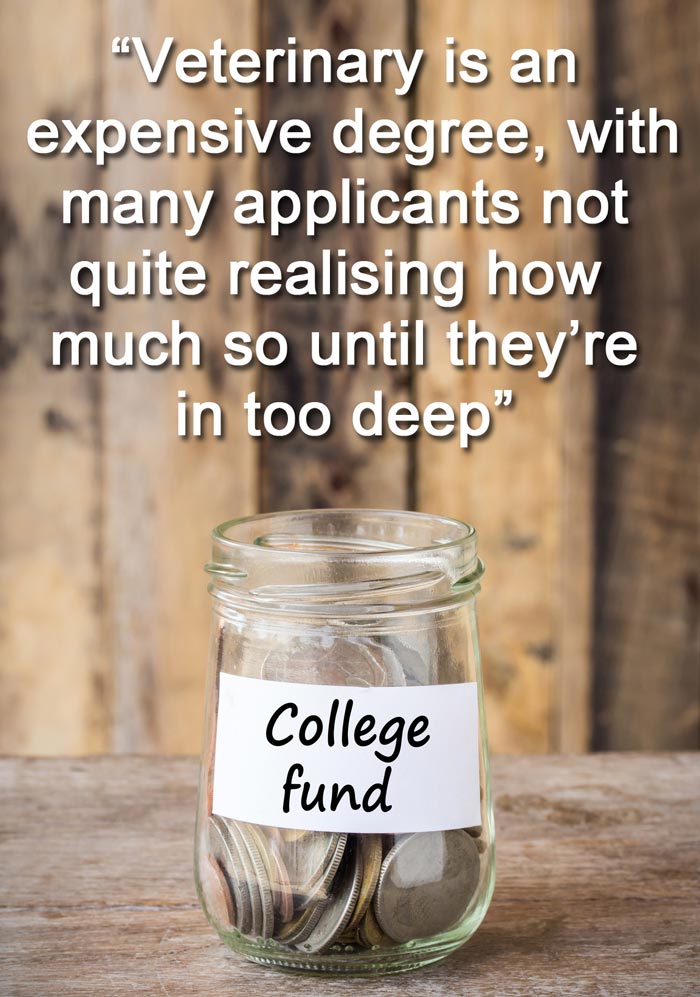Belief #4: A career in veterinary science doesn’t pay well
Compared to many other professions, veterinary science is not what you would call a high performer on the salary front. Depending on who you ask, vet wages fall somewhere between that of a plumber and a hat rack. But is this always true?
Here’s a little secret: a lot of wealthy vets are out there. We’re talking fancy sports cars and boats, holiday houses in top-notch locations and early retirement.
Many of these stories of above-average financial success contain healthy doses of good timing and luck, but I can tell you what none of them have in them: someone plugging away in a salaried position for 20 years, complaining about the fact they don’t get paid enough.
So, what is the secret to going from wage slave to financially successful vet? Here are a few things that seem to be common trends among financially satisfied vets.
Attitude
They’re not embarrassed to expect to make a good income from their profession, and to actively pursue it.
Many of the loudest complainers about low wages are also the first to accuse others of unethical behaviour, gouging and exploitation. Many vets probably err too far towards the side of the ethical. But I have seen time and time again it is possible to strike a sustainable balance.
Adding value
Vets who fall on the right side of the income bell curve never just do what is expected of them. They find ways to add value wherever they are – whether it’s as an employee in their workplace, or to their communities.
It’s very simple: if you want to earn more, find a way to generate more.
Note that “more” does not have to simply mean “more dollars”. You can add huge value to a business in ways that don’t directly equate to an immediate increased dollar income. It’s not all about billing more.
Business ownership
It is entirely possible, and likely mostly overlooked as an option, to create a profitable niche for yourself within an employed position. Having said that, most of the high-earning vets I know are business owners or partners.
Maybe it’s a personality thing. Or perhaps it’s the increased feelings of autonomy, of being in charge of your own destiny, and the incentive of “work more, earn more” that causes business owners to invest more time and energy into work, which usually equates to higher earnings.
Either way, owning your own business certainly seems to be the most common path towards more moolah.
Hard work
Our wealthy vets put in the work. We mentioned luck before, but even the luckiest ones put themselves in a position where they were ready to be the receiver of any good fortune by generous amounts of sacrifice and elbow grease.
The good news is that, in most cases, these hard workers are also the ones who eventually end up with more free time after those initial periods of increased effort.
Taking risks and extending themselves
My favourite story that illustrates a willingness to take risks came from one of the MiniVetGuide Vet Vault podcast guests, who started his first practice when he was in his 20s with AUS$40,000 (£20,000) borrowed from his gran. It was pretty much everything she owned. No pressure, right?
It’s that kind of measured risk-taking that paves the way to financial security. While the rest of us stick to our risk-free salaried positions where we haggle about pennies and sulk about how bad the pay is, the risk-takers are making decisions that could irrevocably alter their financial futures.
Diversification
It’s the eggs-in-one-basket theory: our fiscal achievers usually have many eggs in multiple baskets. They seldom depend on their income solely from their primary vocation.
Some side gigs are hobbies that have the potential to generate income, while others have become a primary source of income. Whatever they are, it’s clear these vets do not live with blinkers, and are not scared to venture outside their traditional roles as “vet”.
What’s great about our profession is that it can provide a stable, predictable and flexible income stream that allows you to keep your head above water while you dip your toes into the streams adjacent to the familiar clinical practice pond.
So, what’s it going to be? Accept the conventional wisdom, do your work and grumble about your pay, or pull your head out and look for opportunities?
The money is there for the making, but it’s not going to come looking for you.
















